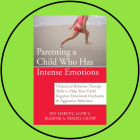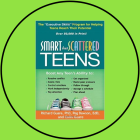Tag Archives:teen
National Alliance for Grieving Children share
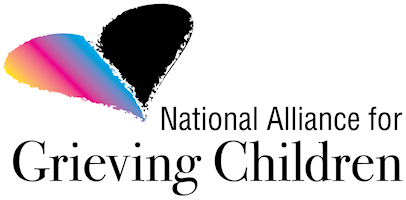 The National Alliance for Grieving Children has information available on their website to help kids to cope with the death of a special person in their life. There are articles, books, and links to finding local support, such as Peter’s Place, as well specialty services such as camps for kids who have lost a parent. Children need someone that they can talk to about death and loss. A lot of times, parents and other close adults can meet these needs. This resource can both support the adults in children’s lives to feel comfortable with having these conversations, or guide you to finding others that can help as well.
The National Alliance for Grieving Children has information available on their website to help kids to cope with the death of a special person in their life. There are articles, books, and links to finding local support, such as Peter’s Place, as well specialty services such as camps for kids who have lost a parent. Children need someone that they can talk to about death and loss. A lot of times, parents and other close adults can meet these needs. This resource can both support the adults in children’s lives to feel comfortable with having these conversations, or guide you to finding others that can help as well.
Teaching a Growth Mindset by Carol Dweck, PhD (video) share
 The TED Talk at the bottom of this post is another video of Dr. Dweck, this time addressing some of the do’s and don’ts for how to parent or teach (or, I would argue, live your life) in a way that fosters the growth mindset. Here are the points that stand out to me:
The TED Talk at the bottom of this post is another video of Dr. Dweck, this time addressing some of the do’s and don’ts for how to parent or teach (or, I would argue, live your life) in a way that fosters the growth mindset. Here are the points that stand out to me:
- Don’t simply praise a child for the effort they put forth.
- Don’t react to mistakes and failures with anxiety, concern, and consequences.
- Praise for effort needs to be given within the context of feedback about the quality of the results of their efforts. Parents and teachers can help kids by encouraging effort but they ALSO:
- talk about areas where the child can improve or do differently the next time.
- provide opportunities to deepen their understanding of the material and revise their work to try again.
For more information regarding this way of thinking, be sure to check out the other items in Skills Worth Working On, by clicking on the “Growth Mindset” tab.
TED Talk: The Power of Believing that You Can Improve by Carol Dweck, PhD (video) share
Think about the difference, emotionally, between these two statements:
- I can’t ride a bicycle.
- I can’t ride a bicycle, yet.
For me and, studies show, for a lot of other people, the first sentence communicates a limitation. The second sentence is full of possibility. That’s not to say that everyone who says that they can’t ride a bicycle believes that they will never develop that ability. It just means that the second sentence clearly leaves the door wide open for growth to occur.
Psychologist, Carol Dweck, is a professor and researcher at Stanford University. She has spent a considerable amount of her professional life focused on trying to deepen our understanding of motivation. What makes people do what they do? In the TED talk below, she speaks about the results numerous studies, all lending significant support to the idea that, when students know that intelligence/skill is something that can be nurtured and improved upon, they are more likely to:
- be curious and want to learn new things (throughout your entire life)
- put a lot of effort into trying to learn more and more
- confront uncertainties rather than avoid them, allowing yourself to take chances and make mistakes for the sake of eventually getting better
- take constructive feedback as an opportunity to improve rather than as a personal criticism
- be inspired by others who are better than you rather than intimidated by them.
In one of her studies, a large number of students were divided into two groups. One group was told, simply, that they were smart kids. The other group was taught scientific facts about the brain and learning. It was explained to them that, “when they step out of their comfort zone to do hard things and they stuck to them, the neurons in their brains can form connections, stronger connections, and over time, they [the kids] could get smarter.” The current term in the literature for this is “neuroplasticity.” The study found that students who learned that trying things helps them become smarter showed greater motivation in school, better grades, and higher test scores.
For more information regarding this way of thinking, be sure to check out the other items in Skills Worth Working On, by clicking on the “Growth Mindset” tab.
Teen Extremes: Regulating Moods in the Age of Anxiety with Dr. Marsha Linehan & Dr. Laura Kastner share
The teen years are tough ones, for both the teens and their parents! So many exciting things are going on in the brain as it develops during the teen and young adult years. Due to advances in medicine, particularly the availability of functional MRI (fMRI) brain scans, researchers have been learning so much in the last two decades. The field of psychology has been studying this information and working to shape it into practical recommendations and approaches for parents, teachers, and the teens, themselves.
In the video below, we get to benefit from the knowledge from two insightful and gifted people in the field. The first is Marsha Linehan, PhD. She is the psychologist who developed Dialectical Behavioral Therapy (DBT) and is highly regarded in the field of psychology. DBT was developed to work with people who meet the criteria for Boarderline Personality Disorder. (Note: If you haven’t yet read my view of the strengths and limitations of labeling a person with a diagnosis, I encourage you to check that out.) Over time, research has shown that DBT concepts also work well with other people who generally experience intense emotions that make them feel out of control. Not surprisingly, a lot of her ideas apply quite nicely to raising teens, particularly those teens who are having a difficult time keeping their emotions in check. Not an unusual concept in the world of adolescence, right?
The second presenter is Laura Kastner, PhD. This is the first I’ve come across her but I enjoyed her approach and her presentation. She is a developmental psychologist and able to talk a lot about what the latest research is telling us regarding what the strengths and challenges of the developing teen brain are. She goes on to give examples of how parents can most effectively intervene with their teenagers, particularly during high emotion times.
Note: I want you to be aware that Dr. Linehan’s speaks extensively about suicide. This is because, in its original form, DBT was developed to work specifically with individuals who had frequent suicide attempts. In the clinical world, these are individuals who are often intolerant of their own intense emotions and have no coping strategies to help them through. DBT helps them through. Now that DBT is an established form of therapy, research is starting to show that the techniques are just as powerful a way of helping people who struggle with intense emotions for a variety of other reasons not the least of which being the turmoil of adolescence. Just because you or someone you love struggles with “regulating” their intense emotion does not mean that they are suicidal or risk of committing suicide but because Dr. Linehan set out to make her life’s work out of working with people who experience the incredibly deep emotional pain, it is through that framework that she describes some of the many techniques that are a part of DBT therapy.
This talk explains some of the concepts you will find in a book that I recommend and wrote a review on, Parenting a Child Who Has Intense Emotions: Dialectical Behavior Therapy Skills to Help Your Child Regulate Emotional Outbursts and Aggressive Behaviors by Pat Harvey, ACSW, LCSW-C. The talk does get fairly technical at times because both of these women are not only therapists, but research scientists too. Try to not sweat over some of the more complex terms they use and just focus on the stuff the more concrete examples they give. This is a talk that was given to an audience of parents and professionals.
This is the first time that I have come across Dr. Kastner and I enjoyed her perspective so much that I’ve added her (and a co-author, Dr. Jennifer Wyatt’s) book, Getting to Calm: Cool-Headed Strategies for Parenting Tweens + Teens, to my (increasingly long) reading list. I am grateful to both of the speakers for allowing this talk to be available for free to the general public.
Parenting a Child Who Has Intense Emotions: Dialectical Behavior Therapy Skills to Help Your Child Regulate Emotional Outbursts and Aggressive Behaviors by Pat Harvey, ACSW, LCSW-C share
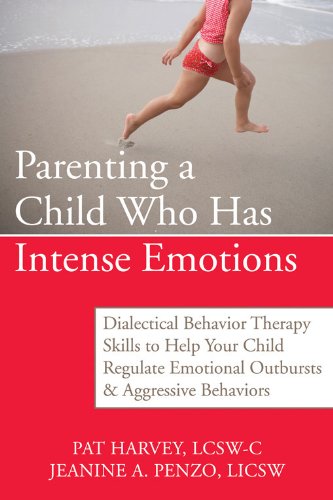 A truly insightful book that helps parents to step out of the power struggles that we adults can so easily find ourselves in with children and teens who experience emotions in a big way. Kids who seem to blow-up over nothing, struggle with transitions, seem to be constantly challenging adult authority, or be intent on badgering you into submission for whatever they want are actually really struggling. They don’t like feeling out of control like this but don’t yet have the skills they need to calm themselves down, to soothe themselves, and to handle things in a calmer manner.
A truly insightful book that helps parents to step out of the power struggles that we adults can so easily find ourselves in with children and teens who experience emotions in a big way. Kids who seem to blow-up over nothing, struggle with transitions, seem to be constantly challenging adult authority, or be intent on badgering you into submission for whatever they want are actually really struggling. They don’t like feeling out of control like this but don’t yet have the skills they need to calm themselves down, to soothe themselves, and to handle things in a calmer manner.
Often our first impulse as parent is to come down harder on these kids, grappling with the feeling that we have lost control of a situation that we “should” be in control of and trying to re-establish a sense authority. We put a great deal of pressure on ourselves to fix the problem and this stress makes us even more likely to lose our temper. We find ourselves reacting in ways that we never would have imagined back in the days when having a child was a dream and not yet reality. We wonder, “How have I come to be a person who yells, physically intimidates, or even possibly gets into physical altercations with my kid?” We think, “I have punished them with every consequence I can think of and nothing works!” We worry, “How is all of this conflict affecting our other children?” and “What will become of my child if we don’t get this turned around?”
The reality is that these kids respond VERY poorly to attempts to dominate them and punish them into compliance and it only serves to escalate the arguments and tension in the household while, at the same time, make them feel worse about themselves. Secondary problems can crop up like depression and suicidal thoughts.
What else is there to do? Based firmly in scientific research, this book helps parents understand the emotional struggles that kids like this are grappling with and how miserable they really feel when their emotions are out of control. It helps you find ways to show your child or teen that you love them, understand that they are struggling, and gradually teach them coping strategies that can help them to regulate their emotions. Additionally, it helps parents to set limits and expectations that are realistic and even therapeutic. If you have been reading this review and have been brought to tears by how much this describes your life with your child, I truly can’t recommend this book enough.
I would also like to add a message of hope. Kids and adults who tend to experience their emotions very intensely also have many strengths and can “use their powers for good.” These are folks who are passionate and tenacious. They are artistic. They feel the pain of other’s deeply and care about making positive changes in the world. When they learn to harness their feelings constructively and focus their energies on projects that interest them, the things that they are capable of is incredible! Looking through the “lens” of the medical model, labels/diagnoses that are often connected to these types of kids are: ADHD, ODD, Asperger’s, Bi-Polar Disorder, and Borderline Personality Disorder. I caution you to only lean on labels like this for what they can do for you. Often labels like this cause harm because some people take it to mean that something is “wrong” with them; that they are “broken.” I don’t think this is a helpful or healthy perspective. You can read more of my thoughts on this here.
So, if you are struggling with a child who has intense emotions, get this book. Also, I urge you to strongly consider finding a therapist (or two) who has experience working with children/teens AND who has experience using the theoretical framework this book is based on, DBT (Dialectical Behavior Therapy). This is a tough road to go alone for both the child and the parent. If you are at your wit’s end, it can also help a great deal for you (together with other parental figures in the home) to have your own therapist to guide you though the process, helping to shift your approach with your child to one that teaches emotion regulation instead of constantly doing battle with them. Ideally, signing release forms so the two therapists can coordinate the work they do with your family will help the process to be as effective and efficient as possible.
PS – You may also want to check out this video, Teen extremes: Regulating Moods in the Age of Anxiety, as it based on the DBT concepts described in the book and presented by Dr. Marsha Linehan, the actual psychologist who developed DBT.
* I don’t make any money from the books that I recommend. My reviews are solely based on wanting to let people know what’s out there and could be helpful to them.
Career/College Planning: O*Net Online share
 A not-for-profit website that pulls together government data about the jobs in our country and people who are working in them so that you can surf around to learn things like what jobs in the United States. There’s a page where you can view lists of suggested careers that might be a good match with the skills that you have. Or, you can research details about specific careers that you are interested in. And, you don’t even have to know what you want to do! You can do a keyword search (ex. “legal assistant”), browse lists of careers within an industry (of course, “Health and Counseling” is my favorite!), or you can answer a bunch of questions and let the website make some suggestions about what you might enjoy.
A not-for-profit website that pulls together government data about the jobs in our country and people who are working in them so that you can surf around to learn things like what jobs in the United States. There’s a page where you can view lists of suggested careers that might be a good match with the skills that you have. Or, you can research details about specific careers that you are interested in. And, you don’t even have to know what you want to do! You can do a keyword search (ex. “legal assistant”), browse lists of careers within an industry (of course, “Health and Counseling” is my favorite!), or you can answer a bunch of questions and let the website make some suggestions about what you might enjoy.
Before you invest your money and time into education or training, wouldn’t it be nice to know details like:
- What kind of education or training with I need to get a job in this career?
- What can I expect to get paid in a job like this? (Keep in mind that these numbers are averages so some people make more and some make less. Part of this depends on how much experience you have, so if you are fresh out of school, expect to make less than average. Part of this depends on where you live. Expect to be paid more in areas that have a higher cost of living and less in more remote, less affluent areas.)
- Will it be difficult or easy to find a job in this profession? If it is a “growing” profession, that means that it is expected that there will be more jobs opening up, creating a higher need for people with this training. If the industry is “shrinking,” then it’s more likely that the job market is already flooded with people who have these skills and it will be tough to find a job.
This website can help you learn all of this and more.
Smart But Scattered Teens by Richard Guare, PhD, Peg Dawson, EdD, and Colin Guare share
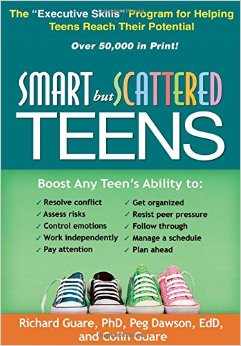 With a sense of humor and practicality, the authors of this book provide concrete, step-by-step ways to take a look at your teen’s (and yours!) strengths and weaknesses in terms of organization and planning. They then provide information about how people’s brains work and how having “executive functioning” challenges effects people’s day-to-day lives. They guide you through ways to improve these types skills with respect and compassion. The thing I like most about this book is that they emphasize that people with very smart brains can struggle with these skills. Geared to the 13 and up crowd, they also have companion books for younger kids (Smart but Scattered) as well as a new, Work-Smart Academic Planner that I’m excited to be checking out!
With a sense of humor and practicality, the authors of this book provide concrete, step-by-step ways to take a look at your teen’s (and yours!) strengths and weaknesses in terms of organization and planning. They then provide information about how people’s brains work and how having “executive functioning” challenges effects people’s day-to-day lives. They guide you through ways to improve these types skills with respect and compassion. The thing I like most about this book is that they emphasize that people with very smart brains can struggle with these skills. Geared to the 13 and up crowd, they also have companion books for younger kids (Smart but Scattered) as well as a new, Work-Smart Academic Planner that I’m excited to be checking out!
* I don’t make any money from the books that I recommend. My reviews are solely based on wanting to let people know what’s out there and could be helpful to them.
CHOP's Gender and Sexuality Development Clinic share
 The Gender and Sexuality Development Clinic, (GSD Clinic) offers psychosocial and medical support for gender variant, gender expansive and transgender children and youth up to age 21 and their families. Their multidisciplinary team, led by Nadia L. Dowshen, MD, and Linda Hawkins, PhD, MSEd, LPC, includes specialists in gender identity development from Social Work and Family Services, Adolescent Medicine, Endocrinology, and Behavioral Health. They work with families to best meet the needs of the child or youth who is transgender, gender-variant or gender-nonconforming. They also provide consultation and training for providers and organizations interested in learning how to better serve the needs of gender-variant youth.
The Gender and Sexuality Development Clinic, (GSD Clinic) offers psychosocial and medical support for gender variant, gender expansive and transgender children and youth up to age 21 and their families. Their multidisciplinary team, led by Nadia L. Dowshen, MD, and Linda Hawkins, PhD, MSEd, LPC, includes specialists in gender identity development from Social Work and Family Services, Adolescent Medicine, Endocrinology, and Behavioral Health. They work with families to best meet the needs of the child or youth who is transgender, gender-variant or gender-nonconforming. They also provide consultation and training for providers and organizations interested in learning how to better serve the needs of gender-variant youth.
With sensitivity and caring, they address how professional medical care can help kids in this position, along with their families, explore what these feelings mean to each individual and make decisions about whether or not hormone therapy is indicated to temporarily hold back the development of secondary sex characteristics (breast development, facial hair, etc) while emotional maturity continues to grow,
Attic Youth Center share
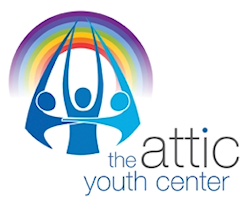 Don’t be fooled by it’s title, the Attic Youth Center, offers so much more than just a place for LGBTQIA+ youth to hang out. I even love the backstory of this place. It was originally started as an eight-week program, by two graduate students back in 1993. Hosted in the attic of a building, the kids wouldn’t let it end. Since that time, it has grown to being a significant resource for area youth.
Don’t be fooled by it’s title, the Attic Youth Center, offers so much more than just a place for LGBTQIA+ youth to hang out. I even love the backstory of this place. It was originally started as an eight-week program, by two graduate students back in 1993. Hosted in the attic of a building, the kids wouldn’t let it end. Since that time, it has grown to being a significant resource for area youth.
I think what I love about it the most is that the heart of this organization is to help kids to grow as citizens who are engaged in the world around them and have a voice. So, not only are there support groups, counseling, case management, healthy choices education, and life skills opportunities, the kids work on community projects together with opportunities for leadership roles. Plus, the website has inspirational stories and lists of resources.
And, as if that’s not enough, the Bryson Institute offers various trainings regarding current “best practices” for working with LGBTQIA+ youth. You can contact them, explain the intended audience and needs, and they can customize a training for your organization. Clearly, this organization is worth checking out!
Mainline Youth Alliance share
The Main Line Youth Alliance is a teen/young adult (ages 14-22) drop in center in on Friday nights Wayne, PA. They have a guest speaker and then hang out time. MYA provides a safe and healthy environment for their LGBTQIA+ youth. Meetings are virtually every Friday evening from 7-9:30 pm. There is no charge for admission and like any group, where teens gather, snacks are served! From time to time, they welcome parents to join in for an activity of fundraising or discussions.





